Aspazija’s postcards
The correspondence between Aspazija and Rainis is registered in the UNESCO "World Memory" list in the Latvian National Register. There are nearly 2,500 letters in the collection, and many of these are written on postcards.
Samuel Holland Rous, "Death of Lovers," from the "Victrola Book of the Opera"
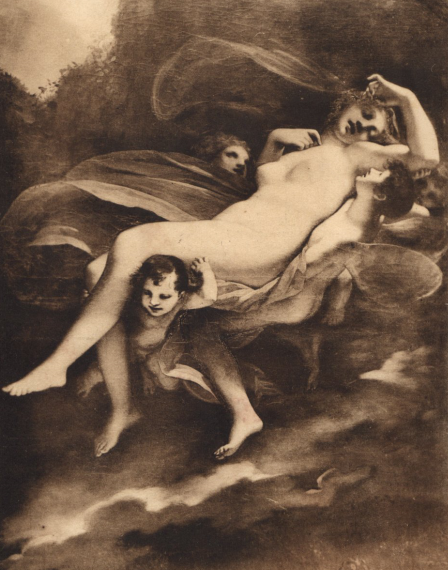
Reproduction of Pierre-Paul Prudhon's "The Abduction of Psyche"
Aspazija wrote postcards not just to Rainis, but also to friends and acquaintances, and she also collected them in albums. Landscapes, depictions of ancient motifs and portraits of distinguished individuals were all part of the poet’s postcard collection, but it was specifically the image of the woman that was presented in all of its varieties.
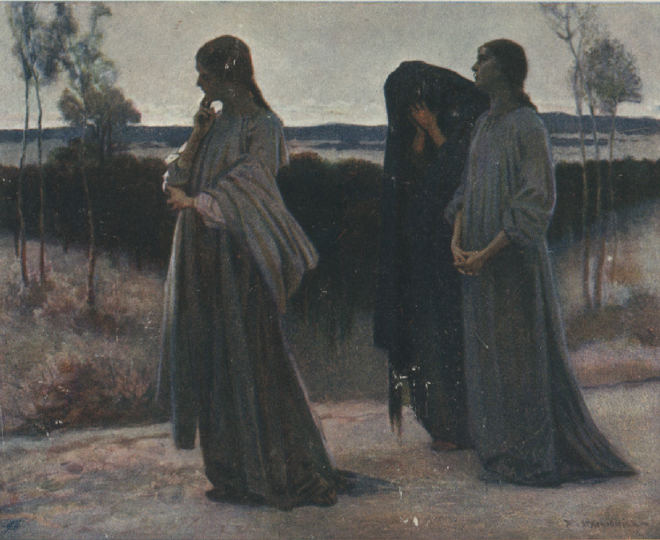
Reproduction of Piotr Stachiewicz's "Twilight"
A woman is an accident and a force, and alongside her beauty and strength, she is a pacifier, sufferer and mourner. The suffering of women on the postcards was often linked to the role of the mother.
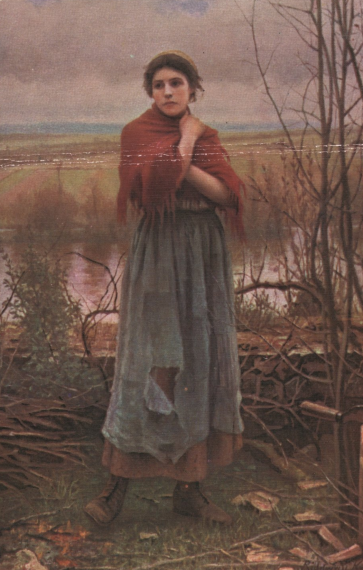
Reproduction of Daniel Ridgway Knight's "I'm Cold"
But even more often the suffering of women on the postcards was often linked to poverty, intolerance and heartlessness.
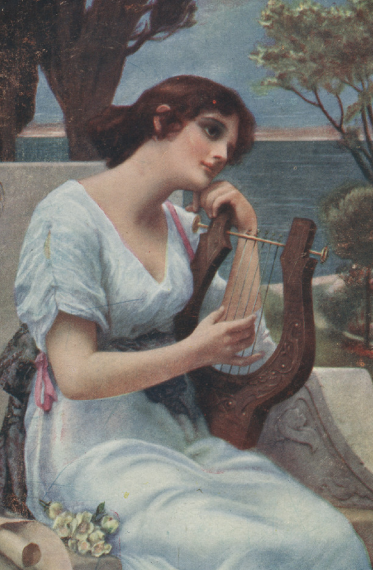
Reproduction of Alfred Seifert's "Young lady playing Lyre"
A woman is a mother and a proud and independent individual. She is a medium for creative inspiration as a muse or a middle-class young lady who is full of holy peace and has sunk into the beauty of nature or the contemplation of fierce love.
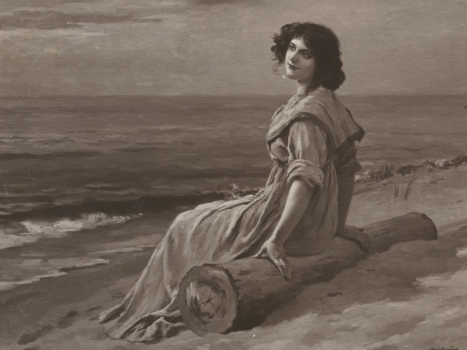
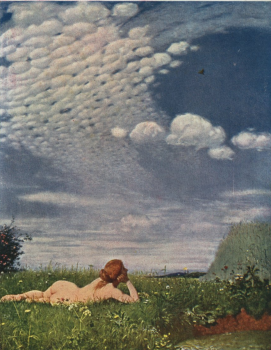
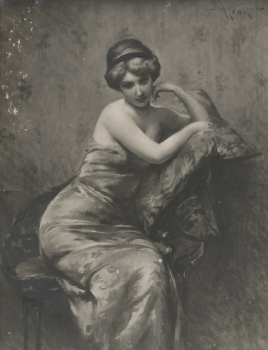
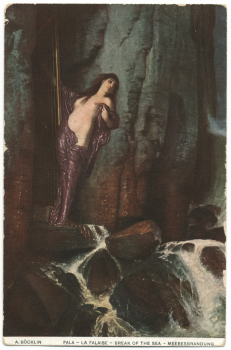
The woman is also presented as a rejecter, a heartbreaker, an old maid or an allegorical image. There are far fewer images of men in Aspazija’s collection.
Reproduction of Kurt von Rozynski's "Sea Was Sparkling Far"
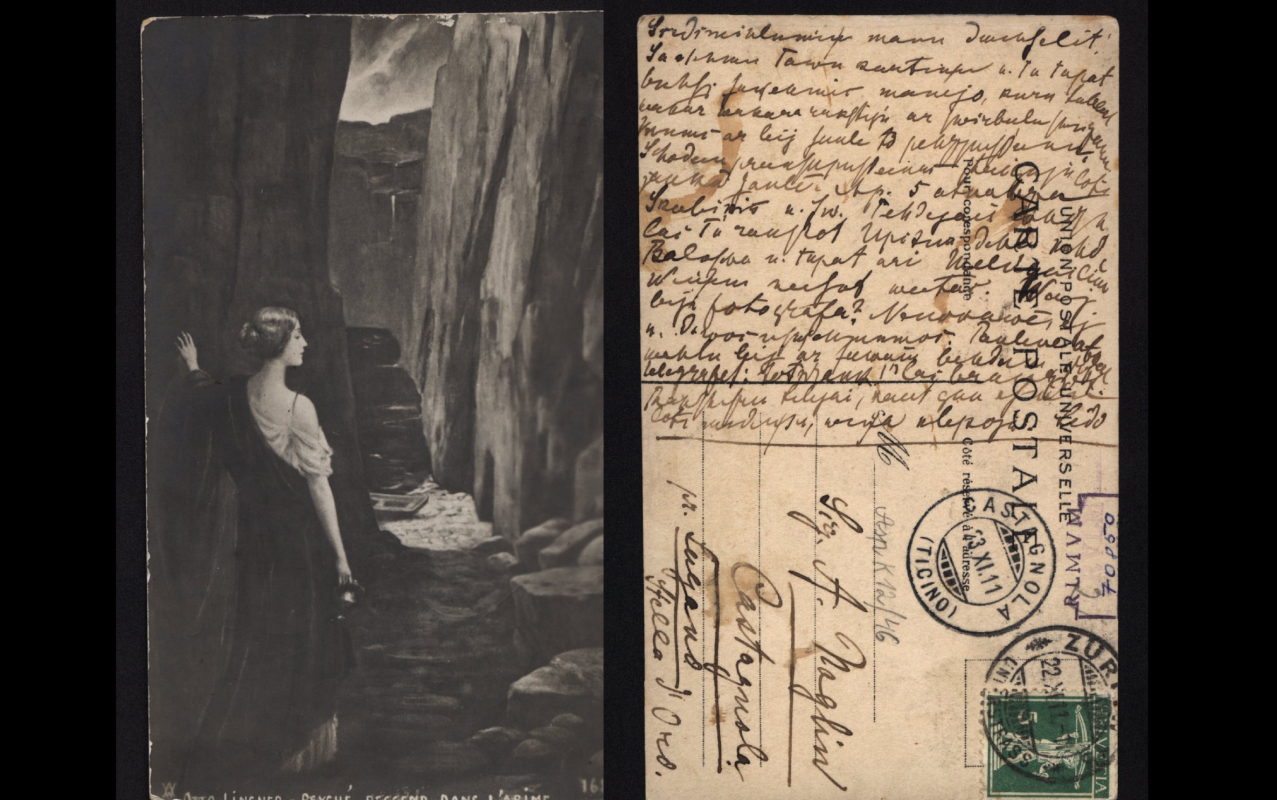
Letter sent by Aspazija to Rainis. Reproduction of Otto Lingner's "Psyche Enters the Underworld"
Sirdsmīļumiņ, manu dvēselīt. Saņēmu Tavu kartiņu, un Tu tāpat būsi saņēmis manējo, kuru tūlīt vakar vakarā rakstīju ar zvirbuļu sveicienu. Mums ar bij saule to pēcpusdienu. Šodien priekšpusdienas staigāju ļoti jaukā saulē. Ap 5 atnāca Skubiķis un Iv[anovs]. Pēdējais lūdza, lai Tu rakstot Upītim dēļ kāda Baloža un tāpat arī Melngailim. Viņam neesot vietas. Vai biji fotogrāfa? Nenokavē, ej, un divos uzņēmumos. Paulīne atkal vēlu bij ar savām bēdām, gribot telegrafēt: „totkrank!”, lai braucot. Rakstīšu Lilijai, kaut gan esmu ļoti mīdiņš, viņa klepoja. Lido.

